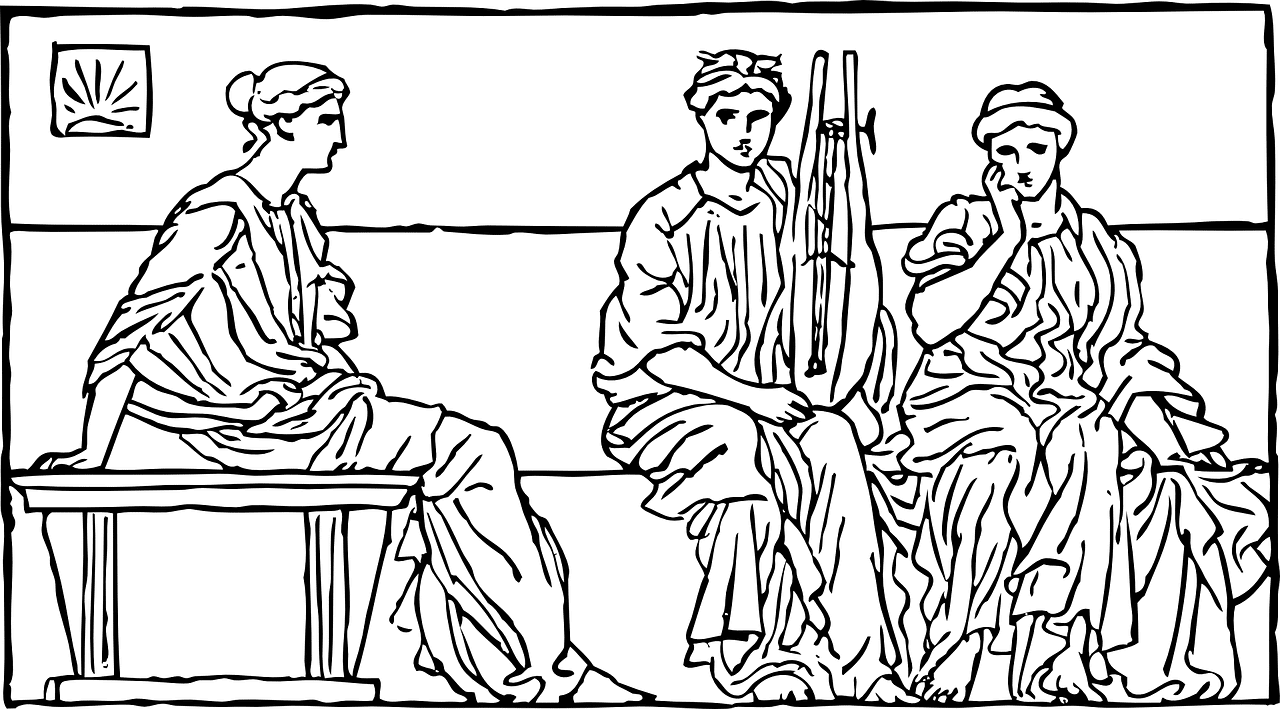
The oldest form of poetry is usually considered to be lyric.
Poetry is the manifestation of beauty or aesthetic feeling through words , whether in verse or prose. In any case, its most common use refers to poems and verse compositions . The word poetry comes from the Latin term poēsis , which in turn derives from a Greek concept.
Although it is difficult to establish the origin of poetry, Egyptian hieroglyphic inscriptions from the year 2600 BC have been found that are considered the first poetic manifestation of which there is a record. They are songs , of which the music is unknown, that have religious significance and that appear developed in different genres, such as odes , hymns and elegies .
In ancient times, poetry had a ritual and community character , especially in peoples such as the Sumerians , the Assyro-Babylonians and the Jews . In addition to religion , other themes emerged, such as time , daily tasks and games .
Formal characteristics of poetry
There are certain formal characteristics that make a text be considered part of poetry, such as verses , stanzas , rhyme and rhythm . These types of characteristics are part of the meter of poetry, where authors apply their literary and stylistic resources. When a group of writers share the same characteristics in their poetry, we usually speak of the formation of a literary movement .
Among the main characteristics of poetry, we can mention the use of elements of symbolic value and literary images such as metaphor and hyperbatón , which require an active attitude on the part of the person who reads the poems in order to decode the message.
This does not mean that poetry is always difficult to understand, nor that this is one of its characteristic features. In fact, part of the magic of a great poem is that each reader can make their own interpretation spontaneously, and that after studying it calmly they arrive at another one, also different from those made by others, but that are all "correct." . Perhaps it is this versatility or elasticity that is sometimes taken as a lack of clarity: fiction novels can also be interpreted in various ways, although there is usually an easier thread to follow, given their lower abstraction.

The woman who dedicates herself to creating poetry is referred to as a poet.
Use of literary figures
The use of literary figures is frequent in poetry. It is a resource that allows words to be used in an unconventional way, appealing to their traditional meaning but accompanying them with certain semantic, grammatical or phonic features to distance them from current use.
Alliteration , anaphora , asyndeton , enjambment , gradation , hyperbaton , hyperbole , metaphor , metonymy , oxymoron , prosopopeia , reduplication and puns are some of these figures that usually enrich poetry.
Types of poetry
The types of poetry are numerous since various questions can be considered to make the classification. One can differentiate, for example, between written poetry (expressed with signs on a material support), oral poetry (disseminated through voice) and digital poetry (which uses technological or computer elements).
According to the way of presenting the content and the theme, it is possible to distinguish between epic poetry , narrative poetry , dramatic poetry , romantic poetry , surrealist poetry , modernist poetry , beat poetry and symbolist poetry , for example. . If we look at literary movements, we can talk about the poetry of the Generation of '27 or the poetry of the Generation of '98 , among many others.

Contemporary poetry is that which began to develop in the middle of the 20th century.
poetic events
Poetry events usually bring together a large number of poetry fans, both authors and readers . One of the most common activities are recitals , where poets recite their works.
In recent years, the popularity of the so-called poetry slam has grown. This type of proposal is similar to a recital, although with a competitive modality. Participants have a certain amount of time to present their own texts to the public, using their voice and body. The audience, in this framework, chooses the winners.
In terms of training, the poetry workshop is the most chosen resource. It is common for an experienced poet to be in charge of directing the classes, guiding the participants and giving feedback on their creations.
It cannot be omitted to mention that, as in other genres, book presentations and poetry anthologies can be very attractive. They constitute a valuable opportunity for poets to present their most recent works and meet their readers.
social poetry
Social poetry is a movement that emerged in Spain in the 1950s that is distinguished by its attempts to demand freedom and justice, at a time when legalized censorship and repression reigned. It was very relevant for culture in the final era of Francoism and in the so-called "transition." Far from creating cryptic messages, social poets use their verses to change the world, denounce injustice, and raise awareness.
Despite the richness of poetry as an art form, its potential on a literary, aesthetic and social level, and the fact that very few people are born with the legitimate gift to write it, it is often considered below other genres, like the novel. This also happens with other genres, such as the short story, which have arbitrarily been placed in lesser hierarchies , instead of appreciating each one for what it can contribute to us.
This unfavorable judgment against poetry also causes many to believe they can approach it without any type of preparation or talent, something that also happens with stories, singing and the guitar, among other areas. History shows us times in which true artists were respected and admired by the people, while at present it is difficult to find authentic art cultists among the sea of people who are included in that group by force , just because "they can".
Sound poetry and transmedia works
The Mexican Rocío Cerón , winner of the Gilberto Owen National Literature Award and the See America Travel Award , has published more than a dozen books of poetry, in addition to several albums of sound poetry. Creator of transmedia pieces, her work revolves around themes such as memory and the senses.
We spoke with Rocío , who maintains intense activity on social networks such as Instagram and X , about her vision on different issues linked to poetic work:
– What qualities should you have to dedicate yourself to the creation of transmedia works?
Have a multifaceted, polysemic view that is not only visual but open to mental vision.
Rocío Cerón
– How is sound poetry developing, what artistic process does it demand?
To create sound poetry, I believe you must necessarily have deep listening, exercising the dimension of listening before anything else.
Rocío Cerón
